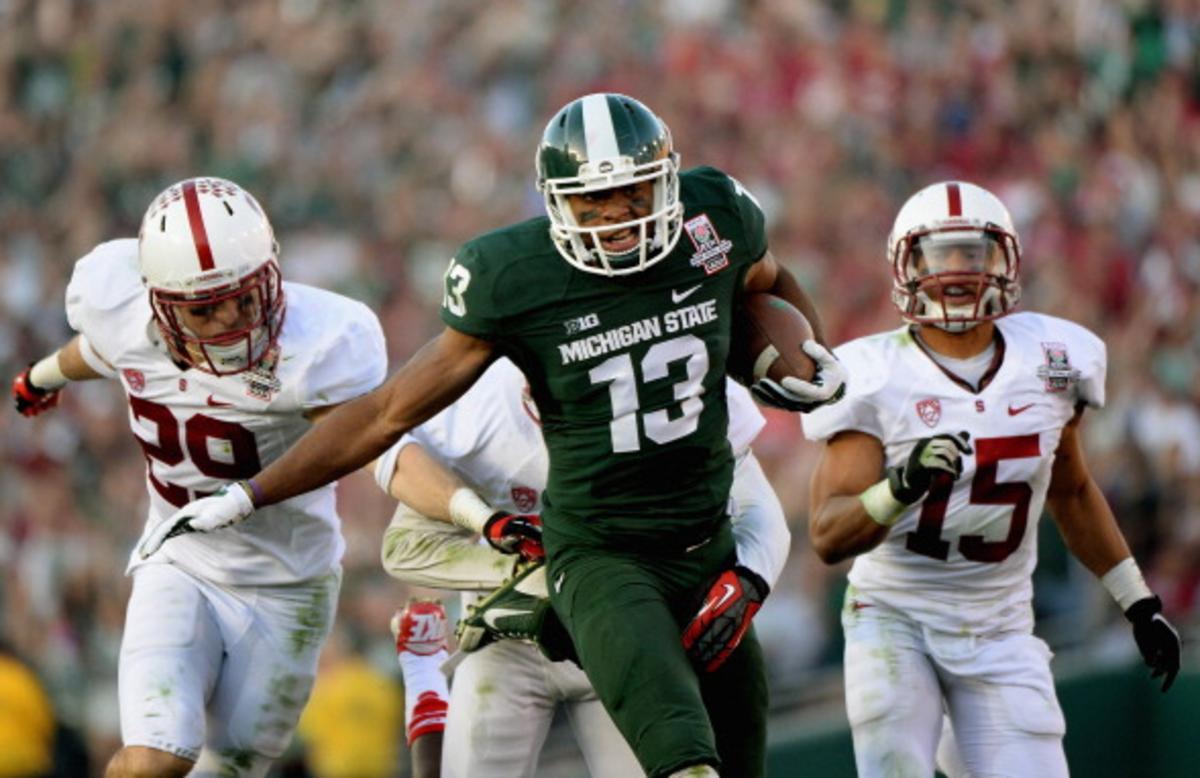Brain Games: A top neuroscientist explains how difficult it is to master an NFL playbook

“It’s about the size of a dictionary,” former Michigan State wide receiver Bennie Fowler surmises. “Maybe a little bit thicker than that.”
In May, Fowler, an undrafted free agent, signed with the Denver Broncos. His reward: A robust and detailed book containing hundreds of unique plays containing multiple routes that he’s expected to master because, as Fowler notes, “Peyton Manning is very precise and detailed.”
Fowler, who ran a 4.35 at Michigan State's pro day and recorded a game-high 97 receiving yards against Stanford in the Rose Bowl, is by every measure a stellar athlete. But, as former NFL wide receiver Nate Jackson describes in his memoir Slow Getting Up, having the physical tools is only part of the equation at the professional level: “Football-speak is a language. If you are not fluent, you are lost.”

But just how difficult is it to gain a mastery of this language? According to Dr. David Redish, a professor in the Department of Neuroscience at the University of Minnesota, very. “The real complexity comes from the fact that you have two decision-making systems at play here when dealing with a playbook.”
“One of those processes -- known as the deliberative system -- is for big decisions that you think a lot about, such as what college one might attend or deciding which team to sign with as a free agent. You construct that future; you deliberate back-and-forth over those possibilities. The problem that this decision-making process is slow and it takes a lot of mental effort, so it’s really not good to use if you are trying to decide whether or not to throw a pass.”
Redish, who has an expertise in behavior, decision-making and information processing in neural systems, further explains that there is a quicker decision-making system, known as the procedural system, that is located in completely different parts of the brain. This is the reactionary system a wide receiver might rely on when adjusting a route mid-stride.
“The playbook is about memorizing a procedure, but specifically a description of a procedure. And so the challenge is that not only memorizing the playbook but having to translate that memorization into the action on the field. Two different brain systems.”

Fowler indicates that upon hearing a play, he immediately imagines where on the field he must be and what actions he must take. It's this ability to visualize -- after a lot of studying and practice -- that distinguishes players at the next level.
"We do actually know a lot about how imagination can help you learn new skills," Redish continues. "When you imagine a visual scene, your visual cortex is active. And when you imagine doing a motor action, your motor cortex is active. There is a process called 'consolidation' where, with enough practice, a deliberative sequence can be translated into a procedural one. This takes a lot of practice, both internal (imagination) and external (physical, real)."
The 6 most generic quotes constantly repeated during NFL training camps
But another layer of complexity arises from the fact that one must run plays against a defense that is not only trying to stop you, but trick you as well. “It’s an arms race of perceptual skills,” Redish explains. “Offensive football players have learned to recognize certain in-game situations -- when is it a blitz, where will the blitz come from, etc. -- yet, at the same time the other team is trying to make those situations not recognizable. They are trying to basically perceptually fool the other team into creating illusions.”
Essentially, memorization can only take a player so far during game situations. To truly thrive at the next level, one must be able to anticipate what the opposition is attempting to conceal and then make split-second adjustments.
So how difficult is it to truly master an NFL playbook? According to Redish, “it’s like trying to play a musical instrument that’s scheming against you.”
You can learn more how the brain processes decisions by reading Dr. Redish's book The Mind within the Brain.
Follow Dan Treadway and Extra Mustard on Twitter.
